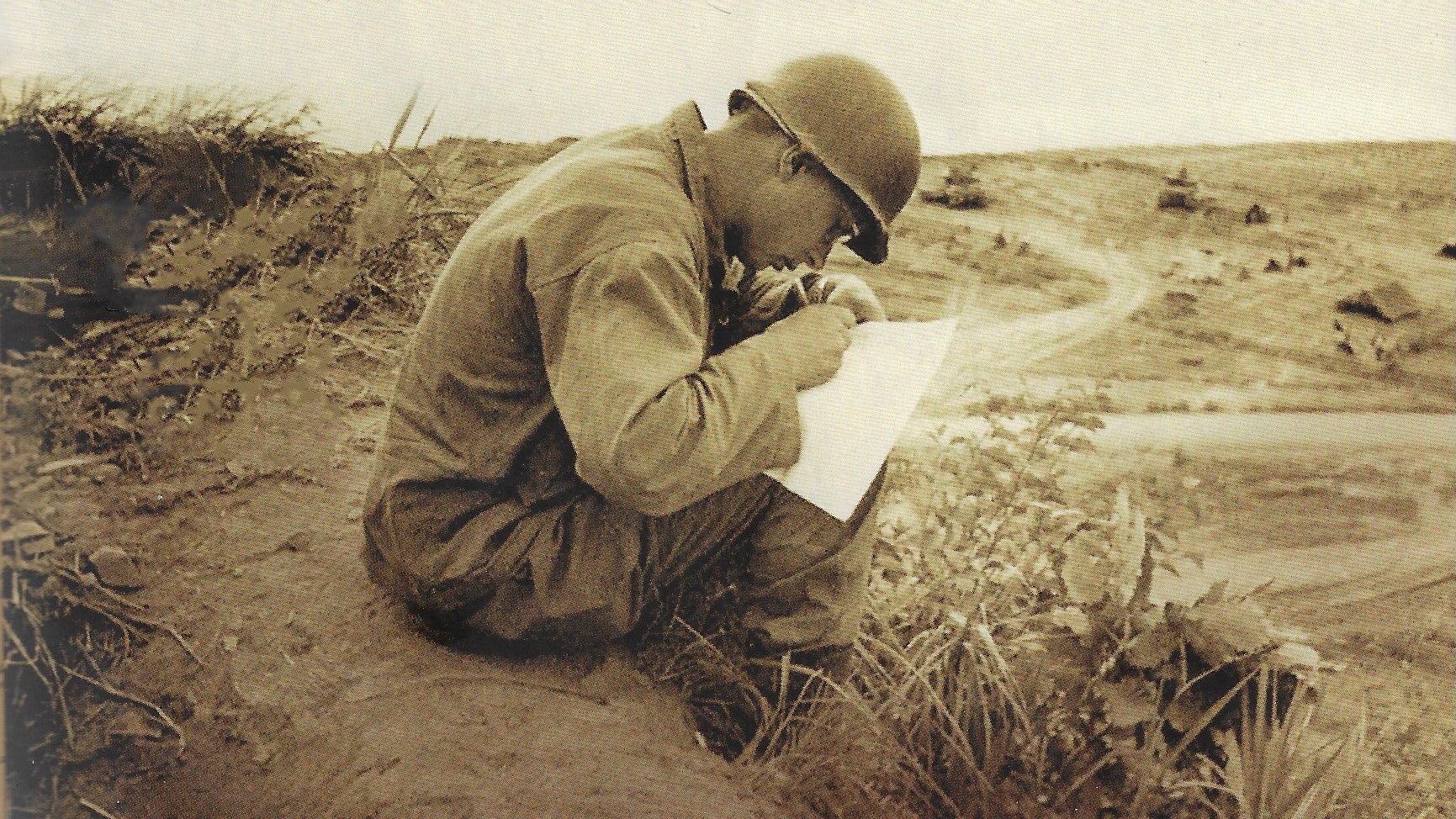War Letters Bring Service Members’ Experiences Home
War Letters Bring Service Members’ Experiences Home

The Museum of American War Letters brings home the stories of American service members across all of the nation’s wars through its curated digital exhibit.
The exhibit features letters and short documentaries and was curated from over 175,000 letters, Andrew Carroll, director of the Center for American War Letters at Chapman University, said in an interview with WWNY 7 News. The featured letters give visitors unique insight into what service members experienced and endured on the ground during periods of conflict.
“Being a good platoon leader is a lonely job,” 1st Lt. Dean Allen wrote to his wife from Vietnam in 1969. “I don’t want to really get to know anybody over here because it would be bad enough to lose a man—I damn sure don’t want to lose a friend.”
The inaugural wing of the exhibit, which features correspondences from the Vietnam War, opened March 29 in honor of National Vietnam War Veterans Day.
The exhibit wrestles with topics including the human cost of war.
In a letter to President John Kennedy, Bobbie Lou Pendergrass wrote about the devastation she felt after her brother, Spc. James McAndrew, became one of the Vietnam War’s earliest casualties in January 1963.
“I can’t help [but] feel that giving one’s life for one’s country is one thing,” she wrote. “But we have felt so bitter over this—can the small number of our boys over in Viet Nam possibly be doing enough good to justify the awful number of casualties?”
While the current online exhibit focuses on the Vietnam War, Carroll has curated letters from the American Revolution to today and hopes to expand it in the future.
In another letter, Pvt. Ralph Knerem wrote to his mother on a piece of toilet paper about recent orders to attend a friend’s funeral.
“… I had order[s] to fly home to Cleveland where he lived, a escort to his mom and dad and family,” he wrote. “I asked my battalion I did not want to go, he said I have orders, that was that. I had no words to say to his family.”
Another part of the exhibit includes a video from the U.S. Vietnam War Commemoration that features interviews with three African American Vietnam veterans.
In the video, retired Gen. Colin Powell arrived in Saigon on Christmas Day in 1962 after serving as a captain for just over two months.
Powell would go on to become the first African American to hold the position of national security adviser and subsequently the first to be chairman of the Joint Chiefs of Staff.
In the video, he described how he defined success during his time in the Army.
“Success, to me, came every day that I was successful in the Army, even the bad days where I learned something,” Powell said. “That took me, I’m pleased to say and honored to say, up to the top.”
Through its featured letters, audio and videos, the Museum of American War Letters continues to offer viewers insight into history and the effects of war on service members and their families.
The museum is “dedicated to U.S. service members, veterans, and their families,” the exhibit’s opening page said. Moving forward, it will continue its mission to “showcas[e] extraordinary correspondences from the American Revolution to the present day.”
View the exhibit here.

